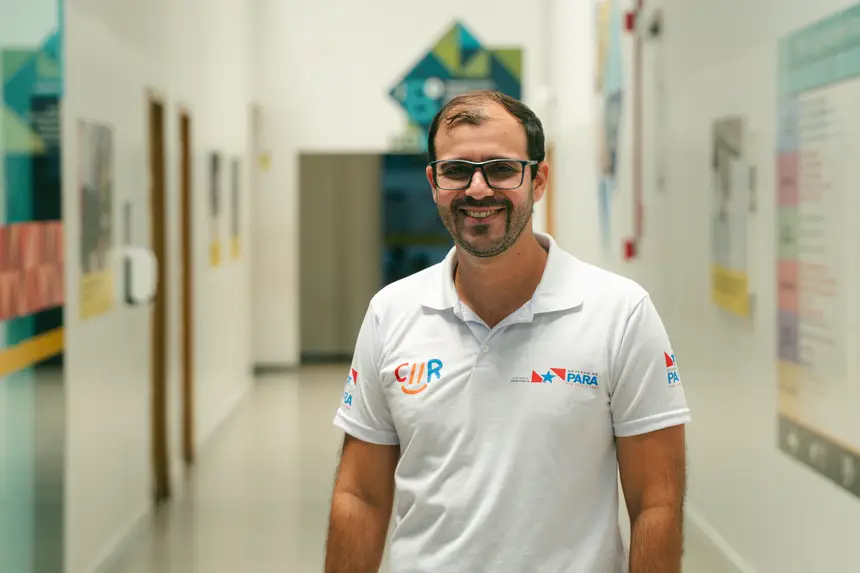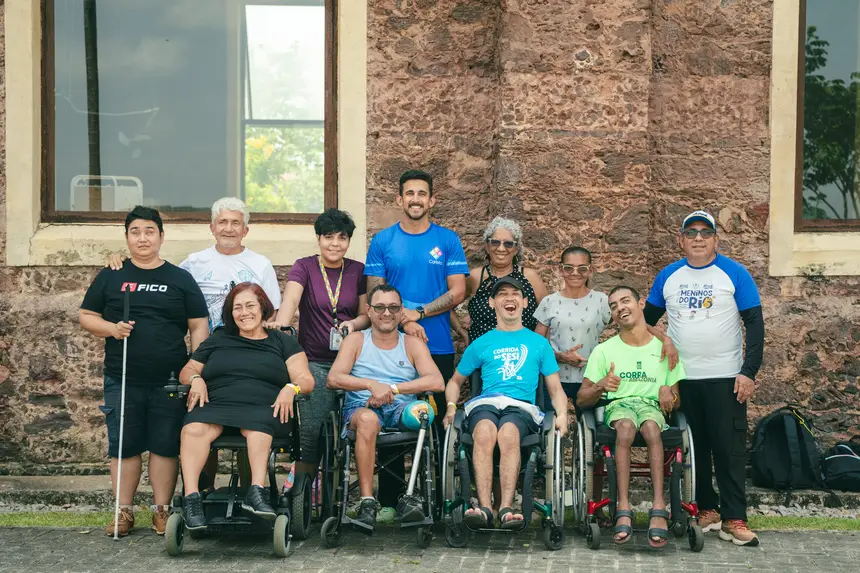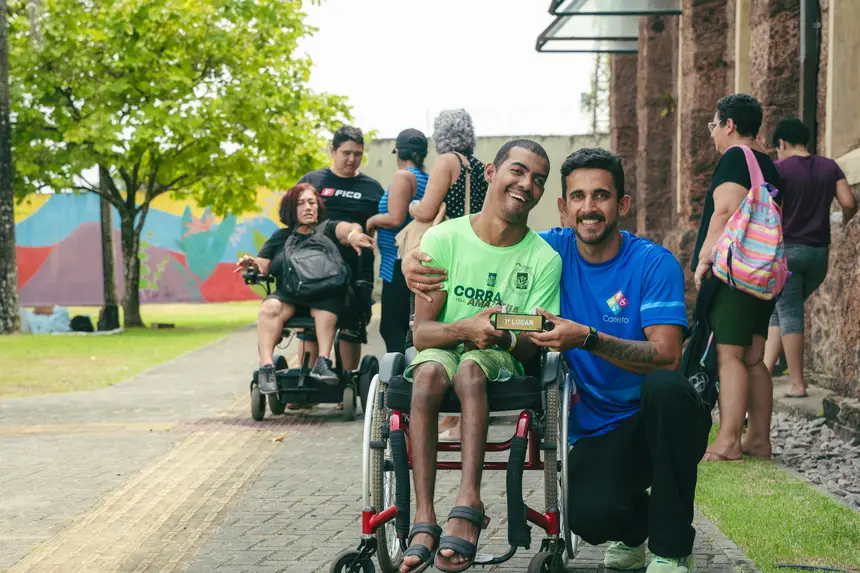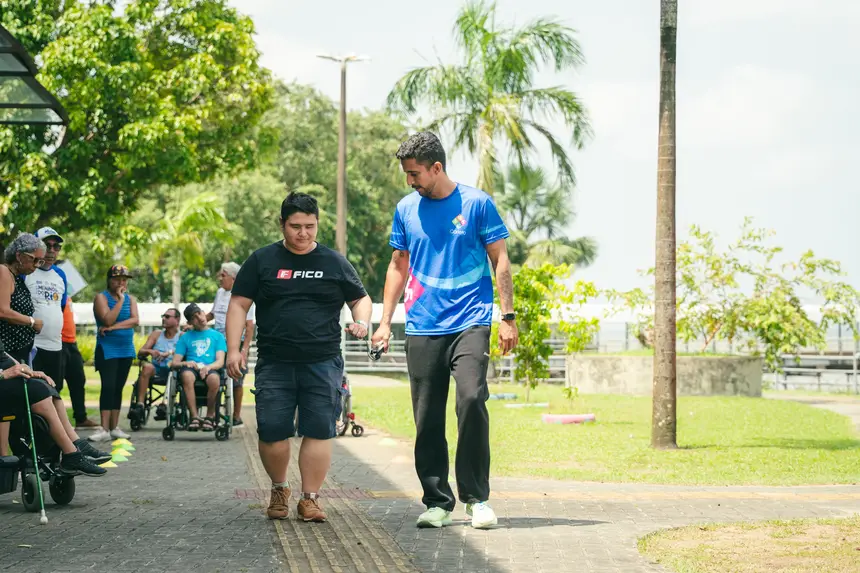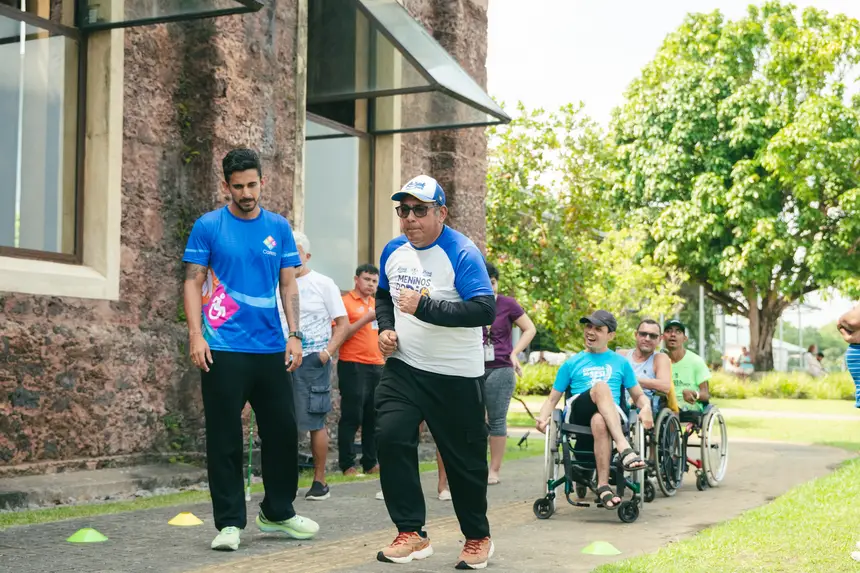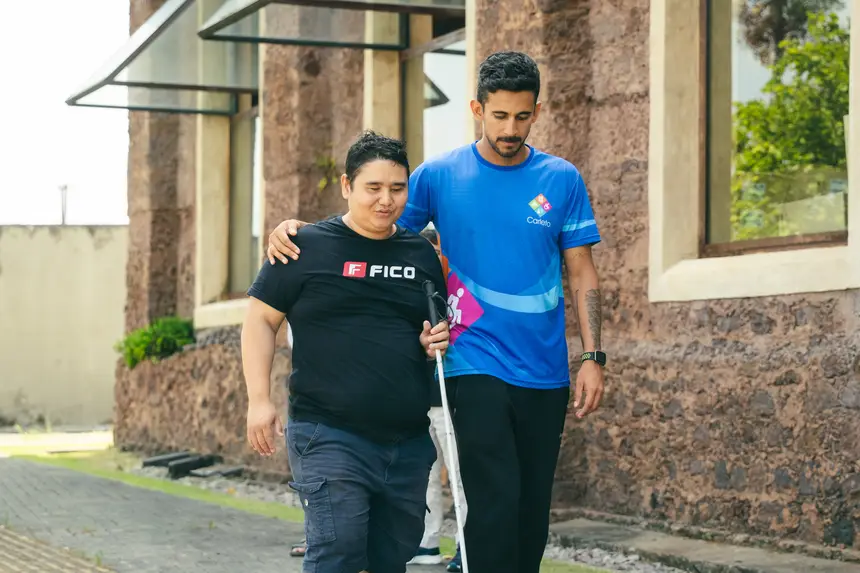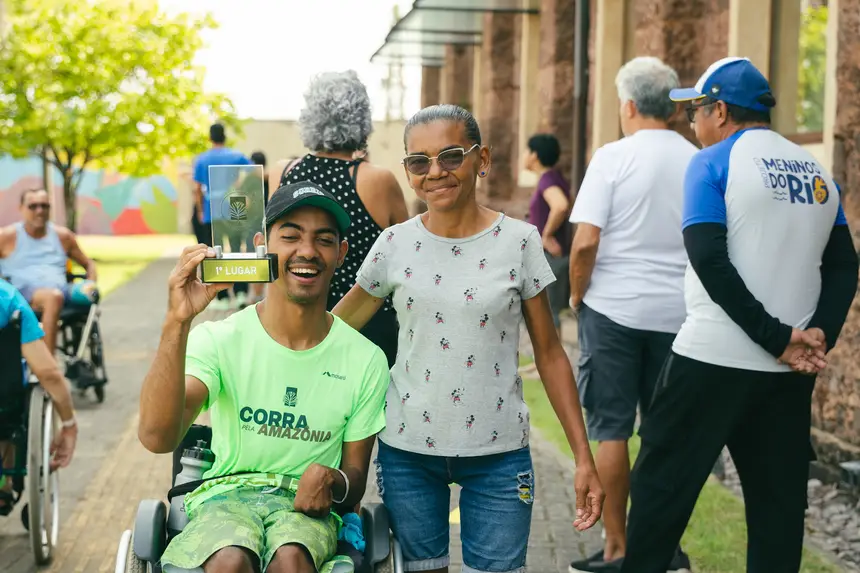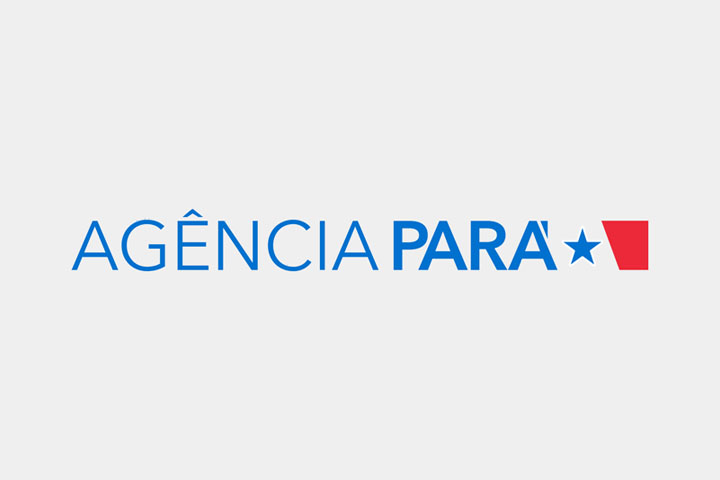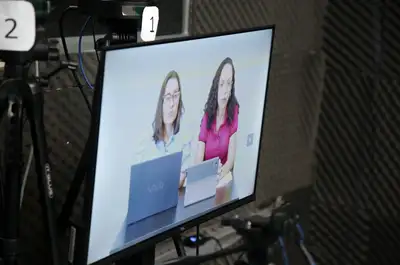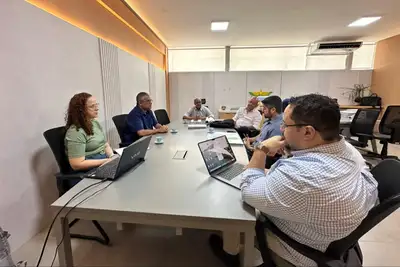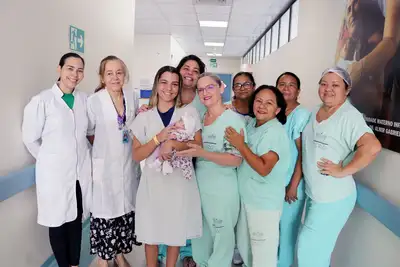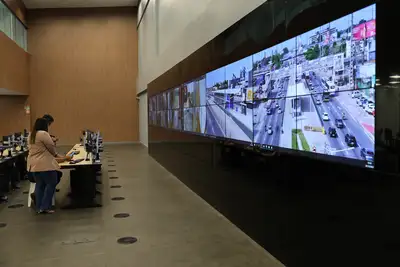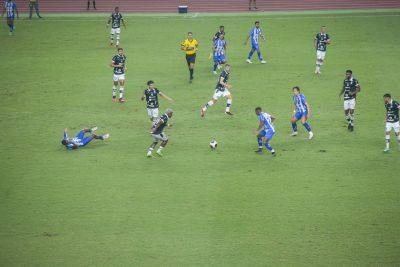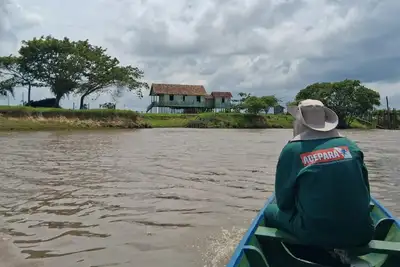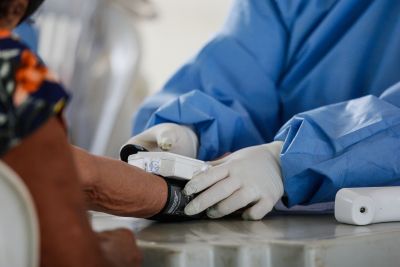Rehabilitation at CIIR Transforms the Lives of Users with Disabilities and Promotes Autonomy
On the National Day of Struggle for People with Disabilities, CIIR highlights the importance of accessibility, citizenship, and specialized assistance
This Sunday, September 21, is celebrated as the National Day of Struggle for People with Disabilities (PcD). Established by Law No. 11,133, of June 28, 2005, the date aims to raise awareness in society about the rights of people with disabilities, promote citizenship, and stimulate reflections on accessibility and social inclusion.
At the Integrated Center for Inclusion and Rehabilitation (CIIR) in Belém, a state reference in assisting people with visual, auditory, physical, and intellectual disabilities, the date holds special significance. CIIR brings together a multidisciplinary team and users daily, demonstrating in practice that inclusion is synonymous with humanized care and the achievement of autonomy.
According to João Rodrigues, a Physical Education professional and therapist at CIIR, the work with users encompasses various areas, such as mechanotherapy, hydrotherapy, and external training, including canoeing and functional training.
“In our project, we manage to work on muscle strength, mobility, motor coordination, balance, and cardiovascular capacity. Group training is essential as it promotes social interaction and allows each user to follow the progress of others,” he states.
The Importance of Physical Activities
João Rodrigues emphasizes that physical education plays a central role in the autonomy of users. “The practice of physical activities integrates users into society, promoting functional independence and showing that everyone is capable of performing the activities proposed in our therapeutic plans, whether in weight training, hydrotherapy, or sports like running and canoeing.”
According to Kassio Yano, 37, a blind user assisted by CIIR since 2019, the assistance received and the activities developed with João Rodrigues strengthen his rehabilitation and promote autonomy. When he joined the center, Kassio was more shy, but today he has gained independence and overcome his fears, especially regarding traffic outside CIIR.
“Inside CIIR, I feel safe thanks to the marked areas. Here I participate in hydrotherapy, daily living activities, consultations, and exams. In my daily life, I use a cane and technology resources, such as the screen reader on my phone, which assist me in my activities,” he said.
He also emphasizes the importance of the humanized care provided by the institution. “Being well received, getting a ‘good morning,’ and being treated with respect makes all the difference. It is gratifying to be treated not just as a person with a disability, but with attention and dignity, from the reception to the rehabilitation team.”
For Kassio, the National Day of Struggle for People with Disabilities represents the guarantee of rights, accessibility, inclusion, respect, and the achievement of space in different aspects of social life.
Achievement and Overcoming
Another inspiring example is Felipe Soares, 30, who participated in the first edition of the Amazon Half Marathon, held in Belém on the last 14th. Diagnosed with cerebral palsy, Felipe competed in the PcD category with the support of a guide and won first place in the 21 km race.
For Margareth Soares, 56, Felipe's mother, her son's victory is the result of his effort and the support received at CIIR. “Participating in the half marathon was wonderful. Each participation is special. We are happy for the teamwork between the guide and the professionals who accompany him daily. The support received greatly contributes to Felipe's progress. Each professional, from those in rehabilitation to those at the reception, plays an important role in this process. This achievement is not just Felipe's; it is a victory for all people with disabilities.”
The National Day of Struggle for People with Disabilities reinforces the importance of a careful look at inclusion, reminding us that accessibility and adequate support can transform lives, promoting autonomy, development, and citizenship, as highlighted by Bruno Cruz, coordinator of the Rehabilitation sector at CIIR.
“Every day we must look at the inclusion of people with disabilities, but this day brings us a reflection on how much we still need to respect, include, and share with these people. At CIIR, we take pride in joining efforts with users, families, and collaborators, transforming comprehensive care, ensuring rehabilitation, and promoting autonomy, quality of life, and full inclusion,” concluded the manager.
CIIR is a state reference in medium and high complexity assistance to People with Disabilities (PcD) visual, physical, auditory, and intellectual. Access to services is made through referrals from health units, via the Municipal Regulation Center, which directs requests to State Regulation. The user's profile is analyzed by the State Regulation System (SER).
Service: CIIR is a government agency of Pará, managed by the National Institute of Social and Human Development (INDSH), in partnership with the State Department of Public Health (Sespa). The unit is located at Rodovia Arthur Bernardes, 1000, Val-de-Cães neighborhood, in Belém. More information: (91) 4042-2157/ 58/ 59.
Text by Tarcísio Barbosa - Ascom CIIR


